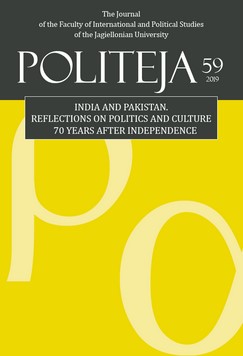Daughters of Trauma. Women as Sites of Nationalistic Appropriation in Partition Cinema
Daughters of Trauma. Women as Sites of Nationalistic Appropriation in Partition Cinema
Author(s): Roshni SenguptaSubject(s): Gender Studies, Political history, Gender history, Studies in violence and power, Victimology, Film / Cinema / Cinematography, Sociology of Religion, Politics of History/Memory
Published by: KSIĘGARNIA AKADEMICKA Sp. z o.o.
Keywords: Partition; feminist approach; memory; cinema; nation;
Summary/Abstract: This paper attempts to delineate and focus on the common narrative thread running through subsequent cinematic treatises on the situation of women during the Partition, particularly those kidnapped and sexually violated during the vivisection. It proposes to construct a cultural and memorialized history of the Partition through a reading of mediated representations of literary engagements with the event, particularly the narrativization of the cinematic trope of the ‘radicalized’ Muslim and his involvement in the abduction of “chaste” Hindu women during the cataclysmic event. In doing so it considers films such as 1947-Earth (1999), Pinjar (2003), and Khamosh Pani (2003) as seminal films addressing female abductions during the Partition and the memorialization of trauma through cinema. The paper takes a feminist approach to addressing the question of the possession of the female body as the symbolic occupation of the nation.
Journal: Politeja - Pismo Wydziału Studiów Międzynarodowych i Politycznych Uniwersytetu Jagiellońskiego
- Issue Year: 16/2019
- Issue No: 59
- Page Range: 139-148
- Page Count: 10
- Language: English

